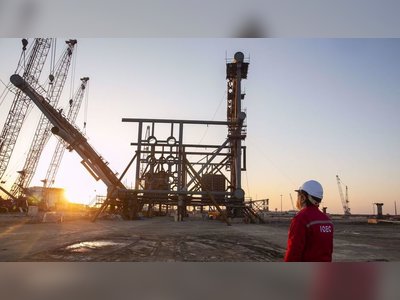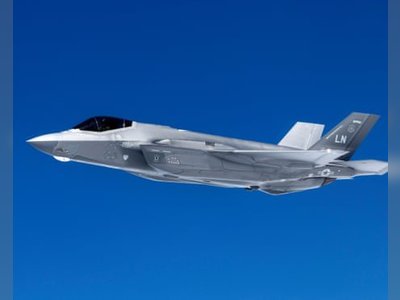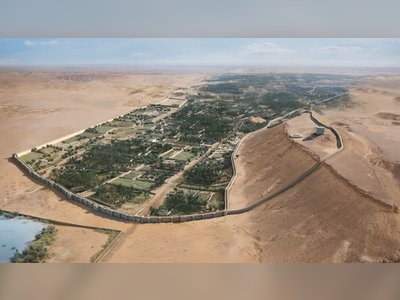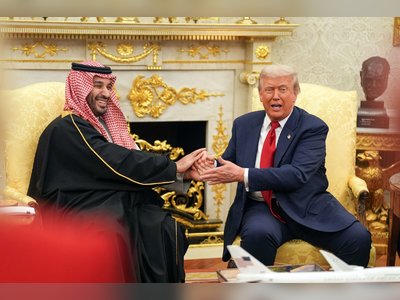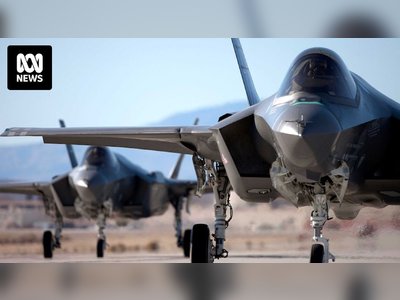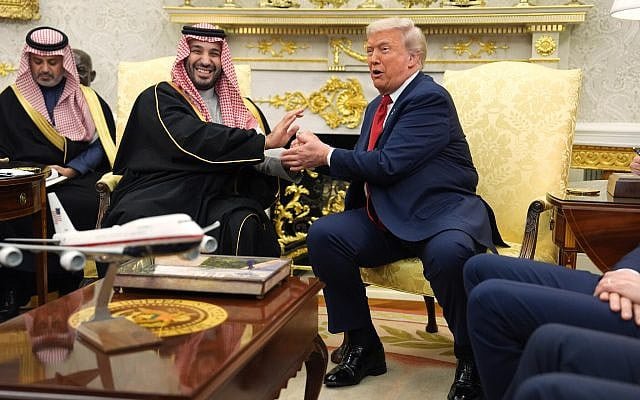
Saudi Arabia Emerges as a Strategic Engine of Middle East Power Shift
Under Crown Prince Mohammed bin Salman the kingdom aligns with Washington, Beijing and Israel to redefine regional balance
Saudi Arabia is accelerating its transformation into a dominant regional player, leveraging its economic clout, political stability and strategic partnerships under the leadership of Crown Prince Mohammed bin Salman.
While the country once operated within the shadow of larger powers, its recent posture signals a recalibration of influence—Washington returns to the centre, Beijing extends economic reach, and Riyadh becomes the hub around which governments, investors and strategists orient themselves.
Fundamental to this shift is the kingdom’s Vision 2030 programme, which aims to convert oil-wealth into diversified industrial strength, high-technology investment and global connectivity.
Analysts note that unlike past efforts, the current phase under MBS ties economic transformation directly to foreign policy – positioning Saudi Arabia not as a peripheral partner, but as a central strategic node with autonomy and initiative.
In its foreign relations, Saudi Arabia now manages simultaneous engagement with the United States, China and Russia.
Its historic alliance with Washington was recently revitalised under President Donald Trump, who praised Riyadh as a key partner and deepened defence and technology accords.
Meanwhile, Beijing remains Saudi Arabia’s largest oil customer and a vital investment source; Moscow stays engaged through co-leadership in the OPEC+ energy forum.
This multi-vector diplomacy gives Riyadh an uncommon degree of strategic flexibility in the Arab world.
The kingdom’s evolving relationship with Israel forms a critical element of its regional strategy.
Shared concerns about Iran’s nuclear ambitions and proxy networks have drawn Riyadh and Jerusalem into a discreet alignment of interests.
Analysts assert that Saudi Arabia is not constructing anti-Israel hegemony, but building a power defined by stability, economic modernisation and regional threat management—one in which Israel may become an official but strategic partner rather than an adversary.
Nonetheless, Riyadh remains cautious.
Public opinion in Saudi Arabia continues to support the Palestinian cause, requiring the leadership to balance strategic openings with political sensitivities.
Saudi officials consistently condition any formal normalisation with Israel on meaningful progress toward Palestinian statehood, even as covert cooperation deepens.
As Egyptian, Syrian and Iraqi influence appears to wane, Saudi Arabia rises into the void.
Observers view this ascent not as a threat to regional stability but as a potentially stabilising force—provided Riyadh maintains its commitment to economic reform, balanced diplomacy and inclusive regional architecture.
In short, Saudi Arabia’s ambition may be a central lever for a more stable Middle East rather than a source of renewed rivalry.
While the country once operated within the shadow of larger powers, its recent posture signals a recalibration of influence—Washington returns to the centre, Beijing extends economic reach, and Riyadh becomes the hub around which governments, investors and strategists orient themselves.
Fundamental to this shift is the kingdom’s Vision 2030 programme, which aims to convert oil-wealth into diversified industrial strength, high-technology investment and global connectivity.
Analysts note that unlike past efforts, the current phase under MBS ties economic transformation directly to foreign policy – positioning Saudi Arabia not as a peripheral partner, but as a central strategic node with autonomy and initiative.
In its foreign relations, Saudi Arabia now manages simultaneous engagement with the United States, China and Russia.
Its historic alliance with Washington was recently revitalised under President Donald Trump, who praised Riyadh as a key partner and deepened defence and technology accords.
Meanwhile, Beijing remains Saudi Arabia’s largest oil customer and a vital investment source; Moscow stays engaged through co-leadership in the OPEC+ energy forum.
This multi-vector diplomacy gives Riyadh an uncommon degree of strategic flexibility in the Arab world.
The kingdom’s evolving relationship with Israel forms a critical element of its regional strategy.
Shared concerns about Iran’s nuclear ambitions and proxy networks have drawn Riyadh and Jerusalem into a discreet alignment of interests.
Analysts assert that Saudi Arabia is not constructing anti-Israel hegemony, but building a power defined by stability, economic modernisation and regional threat management—one in which Israel may become an official but strategic partner rather than an adversary.
Nonetheless, Riyadh remains cautious.
Public opinion in Saudi Arabia continues to support the Palestinian cause, requiring the leadership to balance strategic openings with political sensitivities.
Saudi officials consistently condition any formal normalisation with Israel on meaningful progress toward Palestinian statehood, even as covert cooperation deepens.
As Egyptian, Syrian and Iraqi influence appears to wane, Saudi Arabia rises into the void.
Observers view this ascent not as a threat to regional stability but as a potentially stabilising force—provided Riyadh maintains its commitment to economic reform, balanced diplomacy and inclusive regional architecture.
In short, Saudi Arabia’s ambition may be a central lever for a more stable Middle East rather than a source of renewed rivalry.
